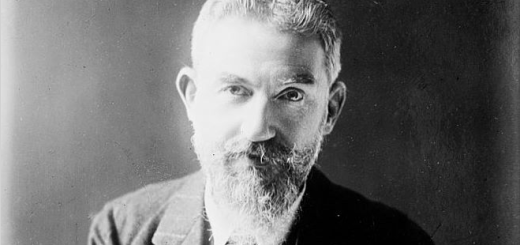Being OK is not OK
 My wife decided to check out a new restaurant in Singapore a few months ago (and I went along meekly, needless to say). As with most major world cities, Singapore’s restaurant scene is fiercely competitive. We had reserved a table for dinner and we were shown to our table when we arrived. We ordered our food which arrived as ordered and on time, and was easily edible. The service was efficient and acceptably courteous. After we finished, we paid our bill, which was not excessive, said our goodbyes and left.
My wife decided to check out a new restaurant in Singapore a few months ago (and I went along meekly, needless to say). As with most major world cities, Singapore’s restaurant scene is fiercely competitive. We had reserved a table for dinner and we were shown to our table when we arrived. We ordered our food which arrived as ordered and on time, and was easily edible. The service was efficient and acceptably courteous. After we finished, we paid our bill, which was not excessive, said our goodbyes and left.
As we walked towards our car, my wife remarked, “That was an ok experience, right?”. I replied, “Yes, and that’s why they are doomed. This place won’t be around in another few months’ time.” I passed by that location yesterday and sure enough, the place was boarded up as a new restaurateur was gearing up to take the place of the one that did not make it.
And that brings me to my success tip of the month: Being OK is NOT OK.
If you think of my restaurant story from the restaurateur’s perspective, the poor fellow did nothing wrong. And for sure it would have taken him a lot of effort – not to mention investment – to deliver the acceptable experience he delivered to us at a reasonable cost. At first glance, it is easy to see that he would expect to succeed – after all, he did nothing wrong, right? Wrong.
To see what went wrong, you need to think of the story from the consumer’s perspective. In a market where the consumer is spoilt for choice (which, by the way, is most markets today) he did not give me a compelling reason to come back. In the language of my former employer P&G, he “met expectations”, but did nothing to “exceed expectations”. If I were still at BCG, we would have said that he lacked a “stand-out factor“.
Meeting expectations or being ok is like running a 400 m race at a good speed. You expend a lot of energy and effort and in return gain, well, nothing! Running a 400 m race is worthwhile only if you end up at least third or second, if not first. Not surprising that GE under Jack Welch followed a logic for each of its businesses: “#1, 2 or out”.
Just as this principle applies to startups and businesses, it applies to personal success as well. Fortunately, I learnt this early when I started working at P&G. I presented my project plan for my first project to my manager, and I thought I had logically addressed everything that needed to be done to finish the project and to deliver what was needed. I remember being rather pleased with it and thinking that the review with the manager was more of a formality to get his “approval” to the plan. Then he asked me, “What part of your plan will allow you to exceed expectations?” and I had no good answer! A very important lesson learnt.
Whether you’re an entrepreneur starting a business, an executive starting a project or even if you’re just planning a birthday party for your child, always ask yourself: what about this plan will stand out? What will make it memorable? What will exceed the “customer’s” expectations? Always plan to excel, because being ok is not ok.



Hey very nice blog!
Thanks for one’s marvelous posting! I truly enjoyed reading it, you can be a
fantastic author.I will make sure that to bookmark your
blog site and may return sometime soon. I want to encourage anyone to continue your great job,
possess a nice day!
Very nice article, totally what I wanted to find.
bookmarked!!, I adore your online site!
I love it when folks get together and share opinions.
Great blog, continue the best work!
Thank’s great post.
I wanted to thank you for this great read!! I definitely
enjoyed every little bit of it. I’ve got you book-marked to check out new stuff you post…